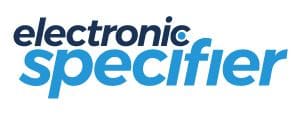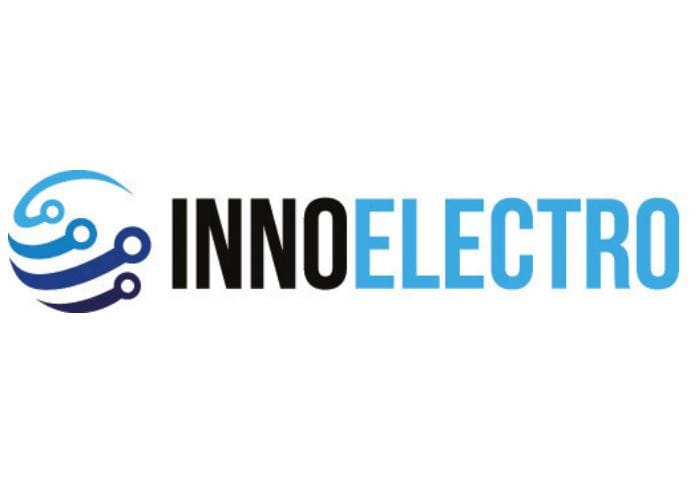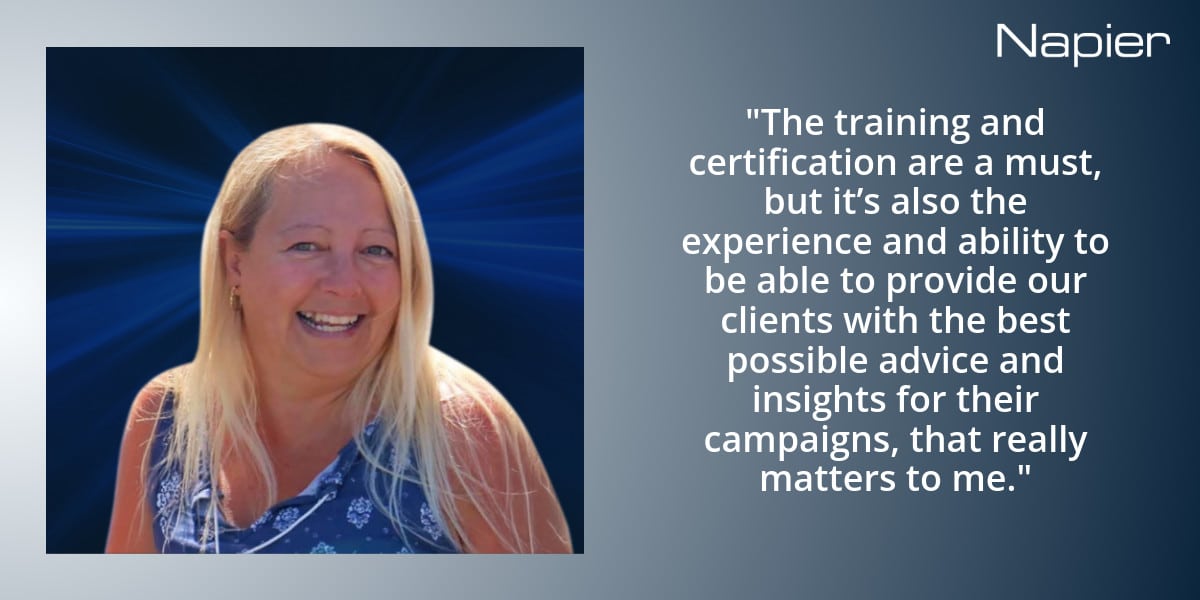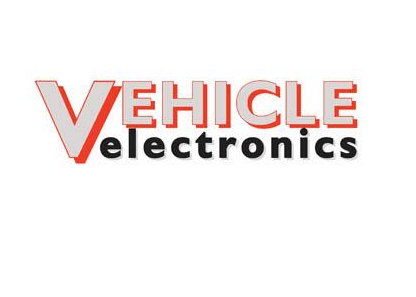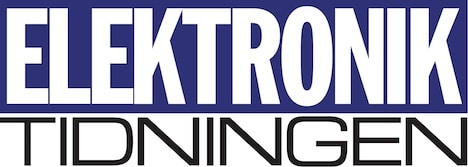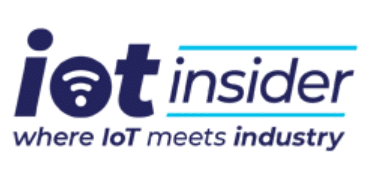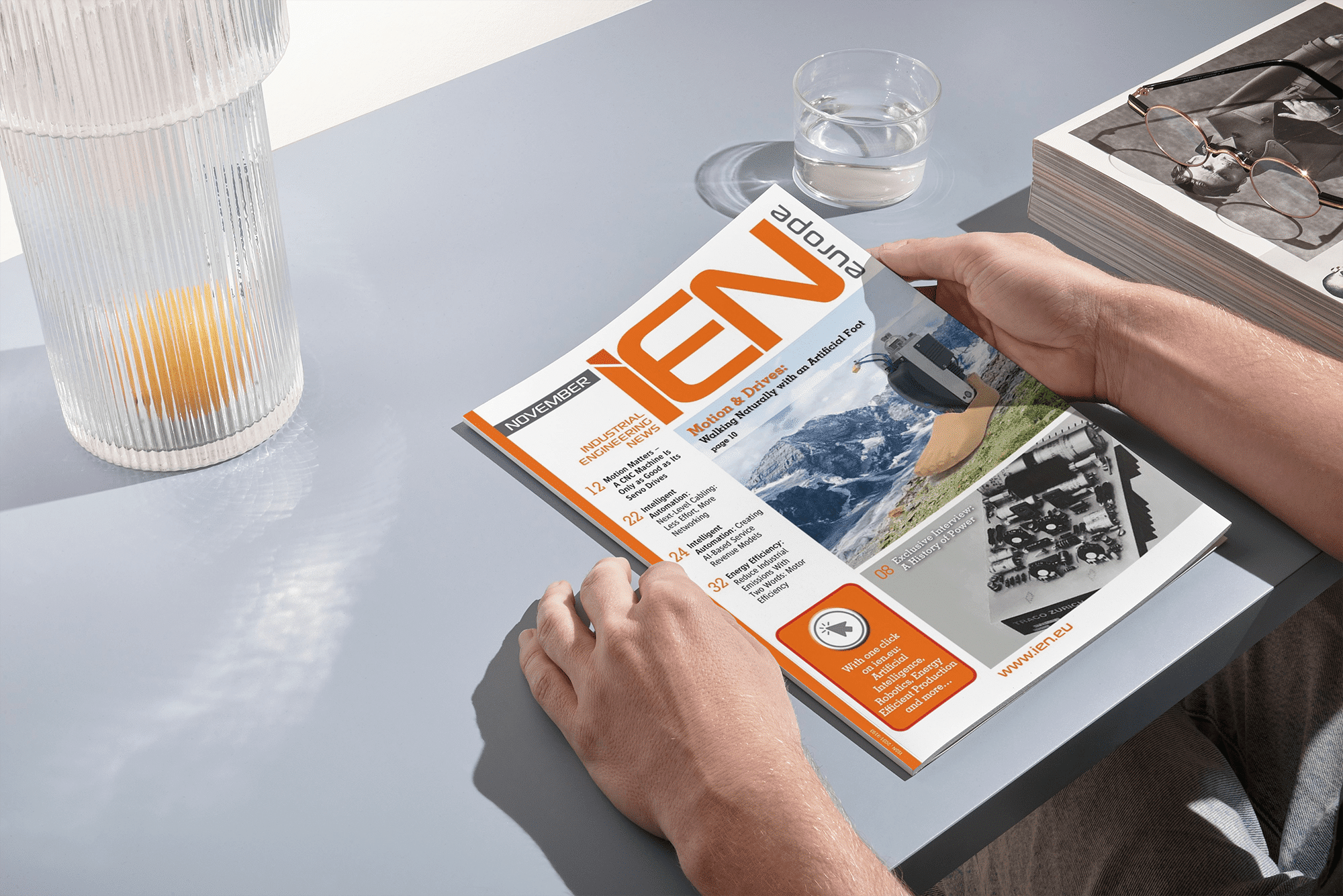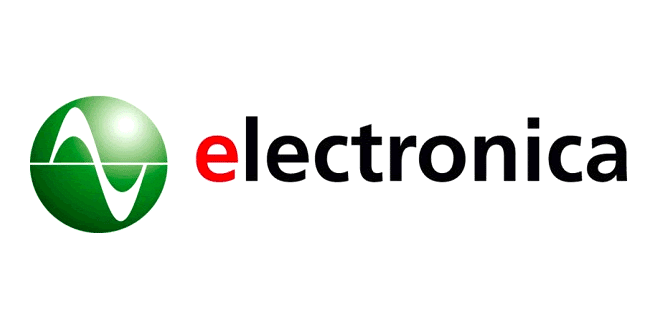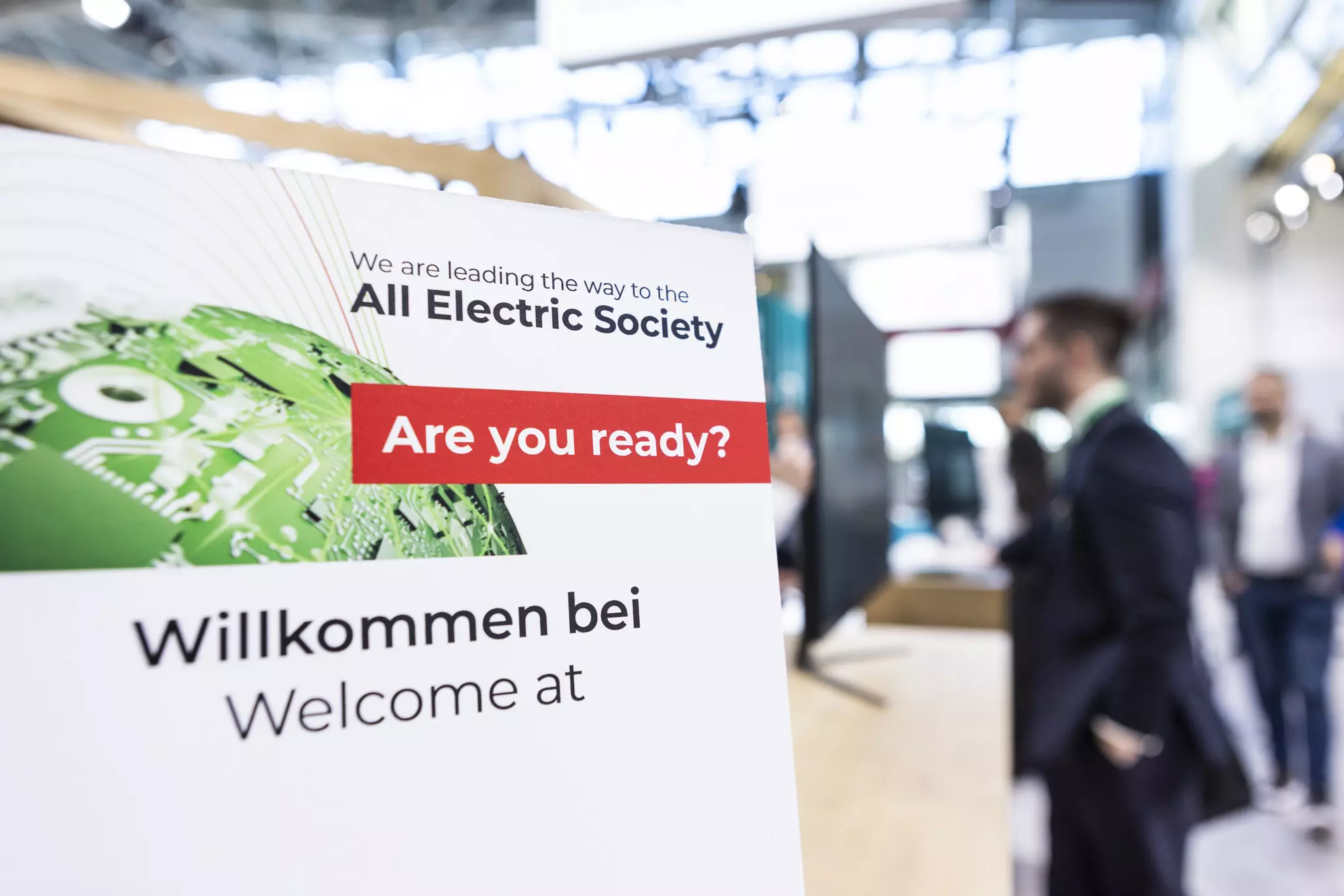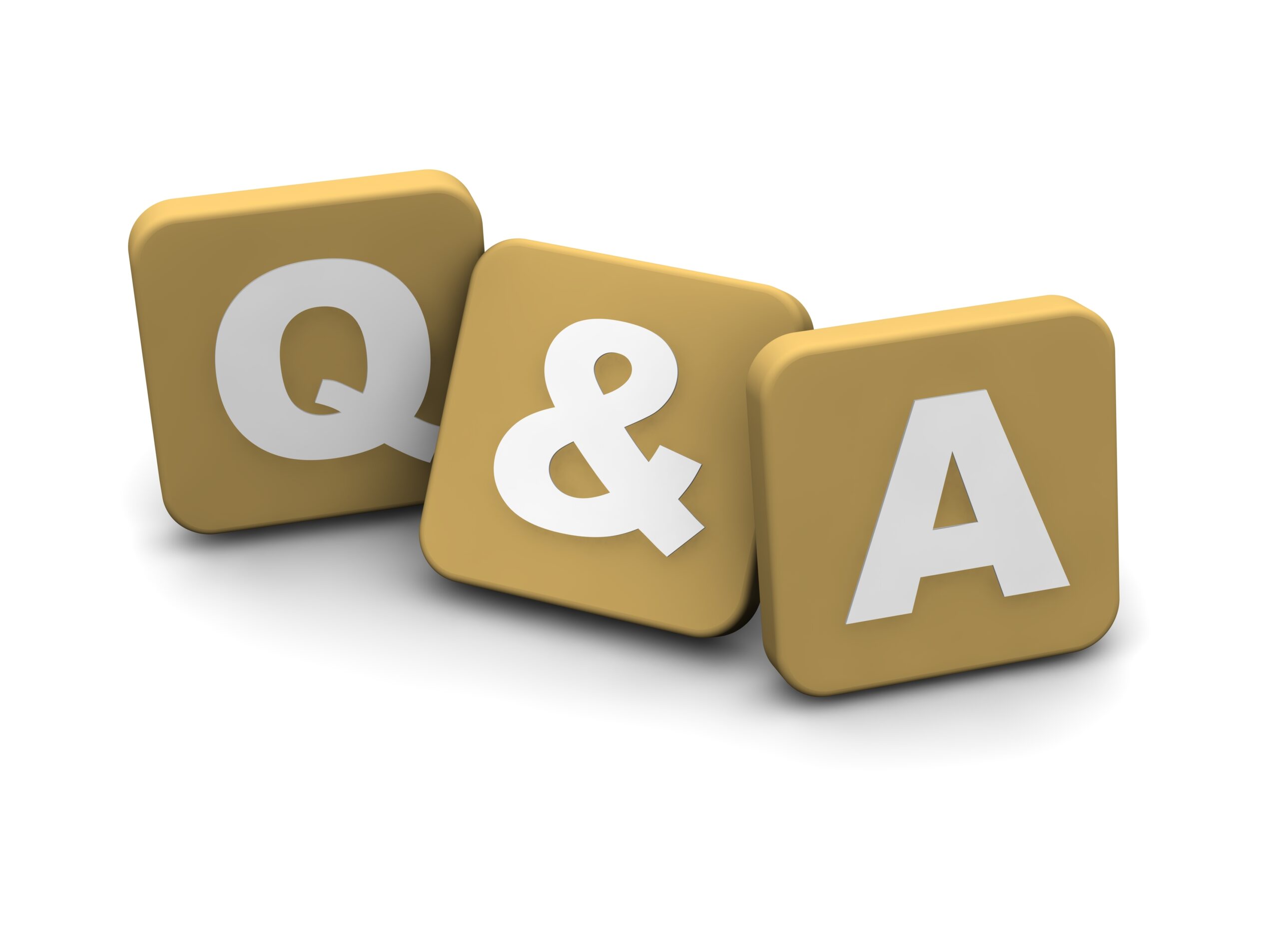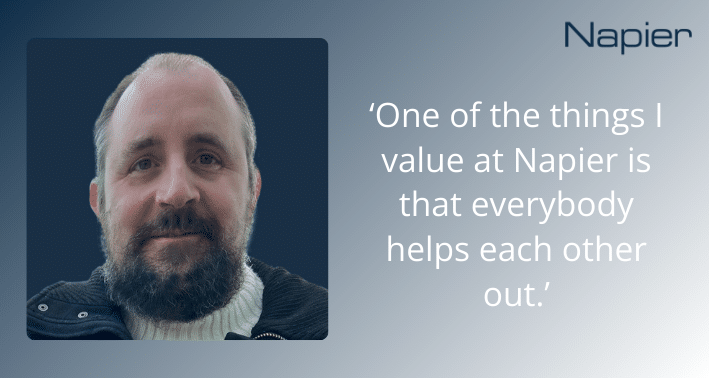Future Horizons: April Semiconductor Update
We’re present this month’s excerpt from Future Horizons’ April report on the semiconductor market. Read on to discover the latest insights and outlook for the industry.
Executive Summary
Annualised growth rates turned up in February, with Total Semiconductors growing 20.7 percent, up from last month’s 14.8 percent, but still down from November 2024’s 22.8 percent high and August 2024’s 28.5 percent cyclical peak.
Logic continued to be the star sector performer, at a healthy 35.8 percent growth, up from 29.7 percent in January, with second-place Memory growing 26.6 percent, down from 29.9 percent in January.
Analog ICs moved back into positive territory in February, growing 8.8 percent, vs. minus 0.4 percent in January, as too did Total Micro, growing 2.6 percent up from last month’s minus 0.4 percent.
The overall IC market ended up growing 24.1 percent year-on-year, up from last month’s 19.4 percent number but significantly lower than November 2024’s 29.5 percent growth and August 2024’s 36.2 percent peak.
The overall trends, however, are still indicating retrenchment vs. recovery, having been now on a downward trend for the last six months. We do not expect this trend to turn up anytime soon.
Annualised growth rates are, however, just one side of the coin. Our preferred measure is the month-on-month revenue growth trends, which we believe are a more accurate reflection of the overall industry health.
Thankfully, February saw monthly sales grow 6.5 percent vs. January, reversing January’s 5.6 percent, December’s 8.7 percent and November’s 8.7 percent decline.
Even more thankfully, this growth was broadly spread across all IC sectors bar Analog, which is still gripped in recession.
Market Growth Indicators
December 2024 saw the industry move into death cross territory, with the 3/12 curve declining further in February, to 17.1 percent, vs. 17.9 percent in January 2025, 8.2 percent in December 2024, and September 2024’s 23.7 percent peak.
At the same time, the 12/12 curve continued its gradual decline, at 19.4 percent vs. 19.7 percent in January and its 20.2 percent December cyclical peak.
As a result, the gap between the two curves widened slightly to 2.3 percentage points, vs. 1.8 percentage points in both January 2025 and December 2024.
WW SC Growth Momentum Indicator
(Jan 2001-Feb 2024 – Percent of US$)
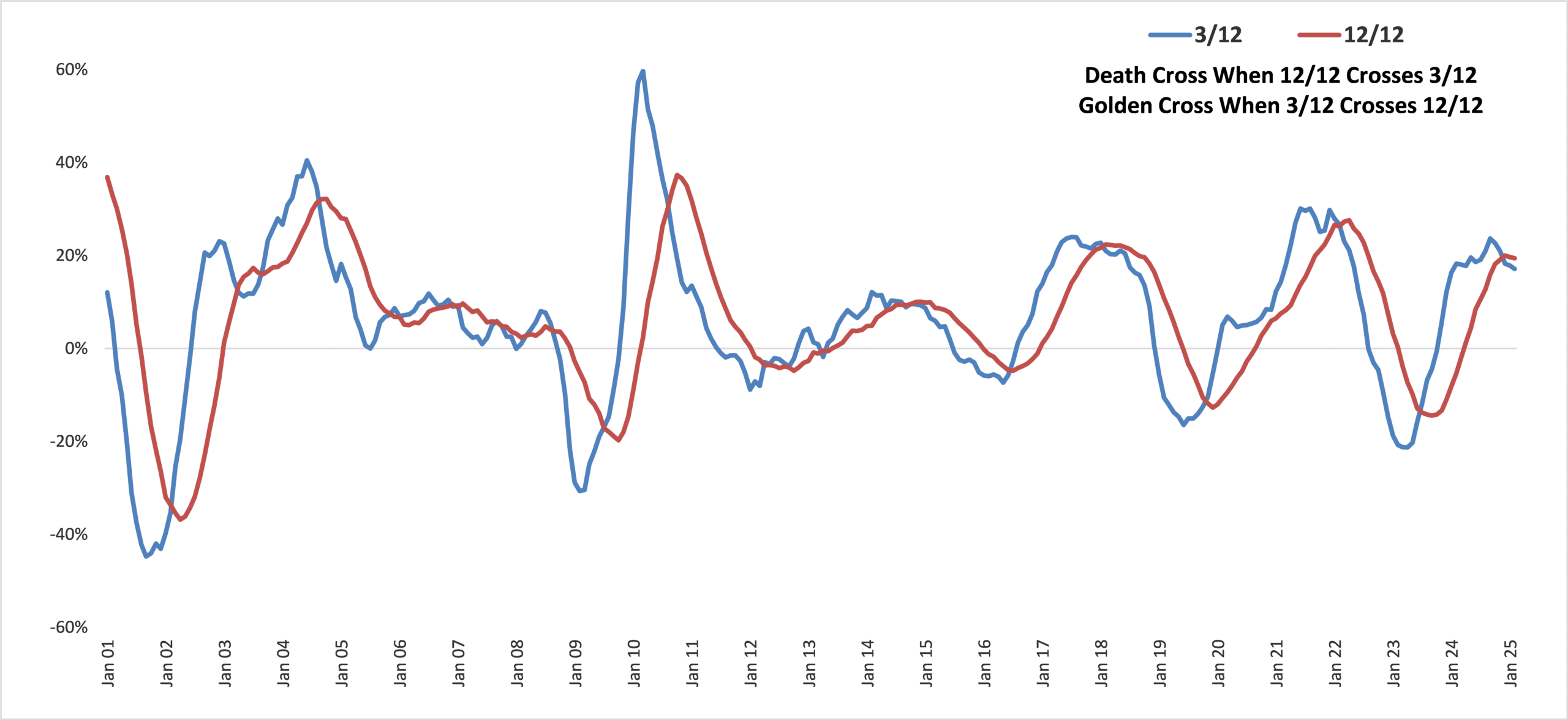
There are three potential scenarios now in play, depending on how the 3/12 curve plays out.
Scenario 1: The 12/12 curve continues its cyclical decline but the 3/12 curve flattens off heralding a modest Golden Cross sometime in the mid- to late-2025, as in 2018.
Scenario 2: The 12/12 curve continues its cyclical decline with the 3/12 curve following its more typical decline trajectory, paving the way for an extended industry walk in Death Cross territory throughout the whole of 2025, as in 2014.
Scenario 3: The 12/12 curve turns back up whilst the 3/12 curve continues its decline, heralding a much stronger Golden Cross sometime in the first half of 2025, as in 2003.
At this juncture, it is hard to predict which scenario is most likely but, if the broader chip market continues its slow and modest recovery and the current AI-inspired boom does not crash and burn, then Scenario 1 is the most likely outcome.
You can read the full March report here: https://www.futurehorizons.com/page/137/
Electronics Weekly Launches Monthly Review Issue
Electronics Weekly has recently announced plans to introduce a monthly publication, replacing the current hybrid-news publication. Entitled, Electronics Weekly Review, the magazine will include thought leadership content and technical stories picked by the editorial team.
Readers will have access to exclusive worldwide electronics news, including market updates, the month’s top international News and analysis, and a distribution updates segment.
The new magazine will cover all areas of the electronics industry, from an emerging technology trends editorial section, to a new Education and STEM section which will highlight initiatives and projects to increase engagement in STEM.
Interviews with company leaders, upcoming members of the industry, inspiring individuals and entrepreneurs will also be featured, alongside a Blog Spot which will highlight the best of Electronic Weekly’s blogs.
“The investment in print means that the Review magazine is a true heavyweight with an arresting cover and strong editorial content,” said Electronics Weekly’s Editor, Caroline Hayes.
“The monthly frequency will allow journalists to provide a broader perspective of the industry, complementing the daily news we provide, and also present longer-form articles available exclusively to subscribers in a print or digital issue”.
It’s been a busy month over at Electronics Weekly HQ as they have also launched a new podcast, CHIIPS (Caroline Hayes’ Industry Insights Podcast). The podcast will feature discussions with industry leaders and personalities on topical subjects within the electronics industry.
The first edition of Electronics Weekly Review is due for distribution April 24th. We look forward to reading the new magazine and we wish the team at Electronics Weekly the best of luck with the launch!
Electronic Specifier Shines At Embedded World
Electronic Specifier partnered with #women4ew to co-host this year’s Women in Tech Forum at embedded world 2025. Held on 13th March in Nuremberg, Germany, the event brought together professionals from across the embedded systems sector to celebrate, inspire, and empower women in technology.
The forum featured an inspiring line-up of speakers who shared their experiences and insights on navigating careers in the tech industry. Helen Duncan, CEO of Blueshift Memory, delivered an engaging keynote, offering attendees a refreshing perspective on career progression. Sakshi Madaan, Product Manager at Anders Electronics, followed with her talk, ‘The Power of Perspective: Big-Picture Thinking to Drive Innovation’, which encouraged attendees to embrace strategic thinking as a driver for innovation.
The event also featured a panel discussion, moderated by Managing Editor of Electronic Specifier, Paige West. Joining the keynote speakers on the panel were Angela Raguse of Fraunhofer IIS, Stefani Eisele of Altera, and Nadja Eder of SchuhEder Consulting.
The panellists shared their experiences and discussed the evolving role of women in embedded systems, highlighting the importance of community and collaboration in fostering inclusive environments.
The forum concluded with a networking session, providing attendees the opportunity to connect, share experiences, and build lasting relationships.
The Women in Tech Forum has firmly established itself as a key event at embedded world.
Electronic Specifier also announced the winners of its Electronics Excellence Awards at embedded world 2025, of which entries were judged by a panel of thought leaders and electronics specialists.
The following companies took home the awards including:
- Power: Nordic Semiconductor – nPM2100 PMIC
- Electromechanical: NXP – i.MX 94
- Test & Measurement: Dukosi – DKCMS
- Passive: Swissbit – Security Upgrade Kit
- Software: Silicon Motion – SM2264XT automotive SSD controller
Congratulations to all the winners!
Engineers Trust Experts Over AI – What This Means for Marketers
The 2025 State of Marketing to Engineers report conducted by TREW Marketing, GlobalSpec, and Elektor International Media makes one thing clear: engineers look less at AI-generated content and more towards publications. Their recent survey of more than 1,000 engineers found that 67% rate their trust in AI at 5 or below on a 10-point scale, while 70% rarely or never use AI to evaluate vendors when making buying decisions.
As a result, 86% look for third party sources they know they can trust, including supplier websites, technical publications, and third-party reviews.
What can marketers learn from this?
That engineers, in particular, value authoritative voices.
The loyalty between engineers and individual authors, trade journalists and experts has never been more important, and is growing, in large part because we don’t believe that AI can replace human knowledge and expertise.
So, AI isn’t likely to kill journalism or marketing any time soon. But, what can marketers do to prevent it? The answer is simple: focus on building relationships with respected industry figures and publish verifiable content about products and services through their reputable outlets.
If you want to learn more about the survey’s findings, experts from Elektor International Media conducted a webinar on the 2025 State of Marketing to Engineers, which is available on demand here.
The State Of Publishing: An Editor’s Lament
This month, we would like to feature a guest blog from an anonymous editor who reflects on how their once fulfilling career has changed over time:
I’d been looking to break into technical journalism for some time, so when I won my first editorship in an aerospace manufacturing title, I was like an energetic rookie pilot on his first mission.
There was so much to comprehend in terms of the sheer size and scope of a competitive and vibrant industry that in terms of design and manufacturing technology, it knew no bounds.
The latest composite aerostructures, increasing integration of embedded electronics and environmental initiatives meant technology breakthroughs happened nearly as regularly as flights in and out of our busiest airports.
I travelled the world, met and interviewed interesting spokespeople who continually demonstrated that the industry was a hotbed for evolving innovative product designs – it was full of creative people thinking not only of the here and now, but of the aircraft of tomorrow.
However, things have come to a pretty pass when my role has now been reduced to the point where I’m simply editing ‘puff’ copy to keep the advertisers happy. The rise of social media, sales erosion, and swingeing financial cutbacks means it really has become a race to the bottom for the entire trade press publishing industry.
And now the sales tail is truly wagging the editorial dog. ‘Why did you travel to see [insert name/location here]? They never advertise’, wails the sales director. Oh, I’m sorry – I thought my job as editor was to source cutting-edge news/feature articles that would interest our readers?
Ah, the readers. I’d forgotten about them, hadn’t I?
I miss the press trips, the crazy food, the airport lounges, the press gifts, and most of all I missed the friendships and laughs. Nowadays, I’m made to feel like I’m something you shouldn’t step in, judging from sour-faced looks I get at some exhibitions. I find myself almost grovelling.
Whilst you can’t exactly call me a salesman, I’m now considered more of a ‘brand ambassador’ than an editor. Apparently, us editors now have ‘clients’. Oh, yes! The editor’s little black book of contacts doesn’t belong to the editor anymore – sales are privy to it too, so lead us to your ‘client’.
What was that old Reithian BBC saying? Inform, Educate and Entertain. The bottom line is, I don’t feel like I’m needed anymore.
embedded world 2025: The Results Are In
embedded world 2025 wrapped up two weeks ago, and despite last-minute travel complications, the show matched the success of 2024 with nearly 1,200 exhibitors from over 46 countries, showcasing their latest innovations and solutions to an impressive 32,000 visitors from more than 80 countries.
The accompanying conferences at the show also saw strong attendance, with 1,897 attendees from 47 countries.
Once again, the Napier team was among those attending the exhibition and conference in 2025. Seven of our team members travelled the halls, supporting many of our clients along the way. We met with over 30 editors across nearly 100 press meetings, keeping us busy, with the occasional opportunity to enjoy stand parties and network with publishers.
“The dynamism and innovative strength of the embedded industry were palpable in every hall—this shows how forward-looking embedded world is,” explains Benedikt Weyerer, Executive Director of embedded world. “With around 32,000 visitors from more than 80 countries and a wide range of innovative products and solutions, the trade fair was a lively meeting place for specialists and experts. The positive atmosphere and the many cheerful faces we observed in the halls and at the stands speak for themselves.”
It was fantastic to attend embedded world again with so many members of our team. The show remains at the heart of our industry and is the perfect place for both young and experienced engineers to expand their knowledge and gain unique insights into the world of embedded systems.
Be sure to save the date for embedded world 2026, taking place from 10th–12th March 2026 at the Exhibition Centre Nuremberg!
Future Horizons: March Semiconductor Update
We’re pleased to share this month’s executive summary from Future Horizons’ March report, featuring the latest insights and forecasts for the semiconductor market.
Executive Summary
Annualised growth rates continued their declining trend in January, with Total Semiconductors growing 14.8 percent, down from 15.9 percent in December and 22.8 percent in November, led by Total Memory, at 29.3 percent, a further sharp reduction from December’s 38.8 and November’s 87.2 percent numbers.
Logic growth was the star performer, at a healthy 29.7 percent growth, up from 23.1 percent in December, with Analog ICs losing ground at minus 1.0 percent, compared with December’s 3.3 growth.
Total Micro was also stuck in the doldrums, chalking up a 0.5 percent decline, albeit an improvement on December’s minus 2.5 percent growth.
The overall IC market ended up growing 19.3 percent year-on-year, down slightly from last month’s 20.3 percent number but significantly lower than November’s 29.5 percent growth. The overall trends are more favouring retrenchment vs. growth.
Annualised growth rates are, however, just one side of the coin. Our preferred measure is the month-on-month growth trends which we believe are a more accurate reflection of the overall industry health.
The picture here paints a much darker outlook, compared with the dizzy double-digit annualised monthly rates, with January’s sales down 5.6 percent from December, on top of November’s 8.7 percent decline. This decline was broadly spread across all industry segments, with Logic ICs the only sector seemingly bucking this trend.
Quite where the overall 2025 growth rate ends up will be determined by how much longer the current Hyperscale AI server market boom lasts. Were that to stumble, watch out for the annualised growth rate to implode.
AI aside, the overall chip market is now entering its eleventh quarter of recession since the Covid boom collapse in July 2022, with the high growth rate numbers propped up solely by the current AI-fueled market frenzy. All other mainstream product sectors are still wallowing in excess inventory and weak end-user demand.
History shows how difficult it is to spot the exact moment markets turn but the parallels between the current AI exuberance and the late 1990s telecoms network infrastructure bonanza remain uncannily profound, with the only obvious difference being most of the dotcom companies were ephemeral newcomers whereas today’s AI champions include some of the world’s most profitable and impressive groups including Apple, Amazon and Microsoft, as well as vNIDIA, the main supplier to the AI economy.
The sword of dotcom bust 2.0 hangs unnervingly from a thread. If the AI market were to even slow, let alone implode, it would take the chip market with it and our 15 percent growth forecast would overnight become a 15 percent decline.
Boom and bust cycles are often forewarned but past experiences are more often forgotten than learned and bad practices mostly unaltered.
You can read the full March report here: https://www.futurehorizons.com/page/137/
Future Horizons: February Semiconductor Update
We’re delighted to share this month’s executive summary from Future Horizons’ February report on the semiconductor market, which includes the latest industry insights and projections.
Executive Summary
Annualised growth rates fell back in December, with Total Semiconductors growing 14.5 percent, down from 22.2 percent in November, led by Total Memory, at 37.7 percent, a sharp reduction from November’s 87.2 percent number.
Logic growth was flat, at 19.4 percent, with Analog ICs at 2.5 percent, a much welcomed, if small, improvement on November’s 0.6 percent number.
Total Micro performed worse, chalking up a 1.6 percent decline vs. last month’s 1.0 percent lacklustre growth, bringing Total IC growth to 18.6 percent, or 10.7 percent excluding Memory, down from last month’s 22.2 percent and 11.2 percent respective results.
The monthly year-on-year annualised growth rates, which peaked in 28.0 percent in August 2024, have been falling now for four months in a row, Figure E1(a). We do not expect this trend to reverse anytime soon.
Following the euphoria of 2024’s AI-Hyperscale growth, the real market reality is now coming to the fore. Quite where the average 2025 growth rate ends up will be determined by how fast and by how much the ensuing monthly annualised growth rates will fall.
As can be seen from the 2021 to 2023 transition path, correctly guessing this number right is more lucky than good judgement.
Total month-on-month Semiconductor sales were 9.3 percent lower than November 2024, reversing November’s 10.3 percent growth. This decline was broadly spread across all IC sectors, as well as Total Opto, with Total Discretes the only product growth area, at 3.9 percent.
With growth wholly dependent on one market, namely AI infrastructure, even a minor misstep here would have dramatic ramifications for the overall chip industry. Right now, however, the AI frenzy shows no signs yet of abating, with the four big tech firms, Alphabet, Amazon, Microsoft and Meta all doubling down on their infrastructure investments.
This unbridled enthusiasm is, however, starting to see some pockets of scepticism and investor concern, as shareholders worry that doubling down on spending, without a commensurate increase in revenues, would starve non-AI business lines and eat into capital that would otherwise be returned to them as share buybacks and dividends.
Few people doubt AI is potentially game-changing but, correctly in our view, only if AI addresses a clear problem that needs a 10x advantage; has clean data to process; and overall compute costs decline dramatically.
Providing ChatGPT or GenAI features to search engines or MS Office only adds incremental value, it is neither disruptive nor game changing. As such, it offers little potential, if any, for increased revenue generation. It simply provides more bang for the same buck, one of the key fundamental hypotheses that has driven the industry since time immemorial.
If investor patience runs out, any pause or slowdown in the current AI infrastructure spend would trigger an immediate and dire bullwhip oversupply situation. From today’s undersupply backdrop, be it nVIDIA GPUs, SK-Hynix’s HBW memories, or TSMC’s CoWoS packaging, long backlogs and delivery times would be reined back dramatically, there is never a nice smooth inflection and no advanced warning.
Given the overall weak global economic outlook, the increased political uncertainties, and the risk of an AI data centre investment slowdown, following two years of hypergrowth, we do not expect to see the real semiconductor rebound before the second half of 2025 at the earliest.
Overall, we remain committed in our view that the more normal aspects of the market, now in their ninth quarter of recession, have yet to recover.
If the AI market implodes, even a recovery here would not be enough to save the chip market.
There is now a real danger 2025’s growth will go negative.
Read The Full Report Here: https://www.futurehorizons.com/page/137/
Show Focus: InnoElectro 2025, Budapest’s Leading Electronics Expo Returns
InnoElectro 2025, Hungary’s leading electronics event, returns from April 8-10 at the Budapest Olympic Centre. This flagship event will bring together industry leaders, innovators, and professionals from nearly 30 countries.
With the ever-evolving landscape of the electronics industry, staying ahead requires access to the latest innovations, insights, and networking opportunities. InnoElectro 2025 provides professionals with the chance to explore cutting-edge solutions, discuss industry trends, gain insights from top experts, and connect with key players in electronics.
Last year, the event attracted 2,500 visitors and nearly 700 exhibitors. Building on the success of InnoElectro 2024, this year’s event is expected to be even bigger, featuring 70 corporate booths and over 50 expert-led presentations.
A key highlight of InnoElectro 2025 is the one-day conference with the Surface Mount Technology Association (SMTA), focusing on advanced manufacturing technologies and industry trends. Other key topics include supply chain challenges, rising costs, and competition from Asian suppliers. Additionally, roundtable discussions will explore resilience strategies and nearshoring opportunities for European manufacturers.
The event stage will host industry experts discussing topics such as manufacturing technology, defence and aerospace, cybersecurity, engineering education, and the role of artificial intelligence in electronics design.
“This market deserves a truly professional exhibition. InnoElectro’s evolution has made it possible for everyone to see and, if appropriate, test the latest developments in electronics manufacturing and meet representatives of equipment manufacturers without having to leave the country,” says Csaba Berta, managing director of Danutek Kft.
The event also features the IPC Hand Soldering Competition, where Hungary’s best soldering expert will earn a place in the World Championship. A student competition will provide a platform for young talent to showcase their skills.
Free to attend, InnoElectro 2025 offers a unique opportunity to connect with industry leaders and explore the future of electronics manufacturing. Register online here.
Following the success of last year’s event, we look forward to seeing the impact of InnoElectro 2025!
Q&A with Napier’s Head of Digital Marketing, Helen Greenhead
‘What brings me the most pleasure is working with an incredible team of talented professionals.’
The world of digital marketing can be complex, but what makes digital marketing at Napier so unique?
I recently spoke with Napier’s Head of Digital Marketing, Helen Greenhead, to discuss her journey to her current role and how she keeps a level head amongst the constant changes within the world of digital marketing.
So what does Helen have to say about the industry?
Tell me a bit about your time at Napier.
I worked for a company called Armitage Communications for 27 years and then it was acquired by Napier several years ago, and I've been with Napier ever since.
Upon starting your agency career, what is one piece of advice that has stuck with you?
Not to stress over situations you can't change. There's no point stressing when you can't change something, and that has stuck in my head ever since.
What has led you to become an expert in digital marketing?
Well, I actually started out as a Database Developer, creating and looking after a number of databases for various clients. I guess this led to the start of my journey into digital marketing. I first got involved with the internet and emails in 1993. We started with one email account for the company, and it was my job to check it every day and make sure emails were dealt with. It was a game changer – to be able to send a client an email was like sending a letter electronically without relying on the postal system. Sure, we had a fax machine, but it didn’t provide the level of privacy or clarity that you could achieve with an email. I got a real taste for the internet and found it fascinating how you could have this facility to look up just about anything and it was there – a whole world apart from Teletext! I knew then that this was the field for me. I started to train on anything digital I could find.
My first digital platform was a web page creator. Working in databases, I already had a good knowledge of SQL, so when faced with HTML coding, it wasn’t that hard to get my head around. The new platforms just kept on coming and I couldn’t get my hands on them quick enough. Google Adwords - now known as Google Ads - was another game changer, a way to capture an audience by offering them collateral based on what they were searching for. They also offered a pretty good training programme, which I took advantage of.
Social platforms like Twitter - now called X- started to emerge and were yet another way to build and reach our audience. Over time we started to see a shift in the way that people requested information. The usual ‘form fills’, or bingo cards as we called them, found in the back of journals were slowing down – instead, we would place form links on web pages and push them out via both journal and social channels, for people to complete online. The telephone line requesting literature didn’t ring as often either as people found a quicker way to get their hands on what they wanted, without having to wait for the post. Marketing automation started to evolve, and I enrolled in training for certification in Oracle Eloqua. This was another game changer – now we could generate forms that would feed information directly into the database and enrol potential customers in nurture flows. Mapping out the customer journey from start to end, not only ensured prospects received the right information at the right time but gave us insights into where people were in the buying journey. And so, the real digital was born.
Digital marketing has evolved so much from when I got my first taste and has led to heaps of training. I now have countless certificates in different social platforms, SEO software and marketing automation. The training and certification are a must, but it’s also the experience and ability to be able to provide our clients with the best possible advice and insights for their campaigns, that really matters to me.
What is your day-to-day?
My days are busy! I always start the morning with a cup of tea – I cannot function without one. My next job is to check my inbox and respond to any emails that have come in overnight. There are usually lots of emails to go through as we have a global client base. Most of the time the emails require action, so either I deal with that directly or pass it to a team member, depending on the request. Usually, I have meetings booked in – on a typical day there could be 3 or 4 to attend. I oversee campaigns my team is working on and I am on hand for any queries they may have, including training on new platforms. I work on proposals with our account management team and provide the strategy for the digital campaigns.
Typical activities in a day could include mapping the customer journey for a campaign, managing the digital team, running reports, writing ads for paid media, and picking apart campaign results so that we can make data-driven decisions.
What is a project you're most proud of and why?
I had to think about this one because I'm actually proud of all the projects that come through the digital team but for different reasons. So, some make me proud because of the success of the campaign and some for the sheer volume of work that's taken place.
We did a campaign for ABB electrification, and we did it in 27 different languages. I'm proud of that one because it was such a mammoth job that so many people were involved in, and I feel we all came together. We created local language landing pages, emails, forms, and social posts.
As a team, we collaborated and came together, and we pulled it off and delivered a multi-language campaign. That makes me quite proud when I look back at the pages, I think wow, we did good there. It was a mammoth job, and we pulled it off.
What do you feel your best quality is?
I think anyone in Napier would tell you that I'm a calm person. If you're asking anyone that would be what they would say. I try not to stress over situations or tight deadlines because it's just so much easier to work with it and get on with it and do it. So, when I'm on the phone with other members of staff and we've got a big campaign going and they're stressing, I always say don't stress, it’s okay. That's probably my strongest quality.
Where do you see the digital department in the next 10 years?
I would like to see more growth in the digital team within the next 10 years. We know that digital is going from strength to strength and is only going to get bigger as it becomes more widespread. I would like to continue training team members in specialised fields so that we can continue to offer the very best in terms of knowledge and results for our client's campaigns.
What is one piece of advice you would give to new starters?
It was given to me and that is not to stress over something you've got no control over because if you can't change it, there's no point stressing about it.
Sometimes situations arise and you think, it can be stressful. But if you can't change it and you can't make any difference, why let it cause you stress?
What is something you have found to be unique to Napier and why?
I think Napier offers an excellent in-house training programme for both new starters and those who want to brush up on existing skills. I think that's unique because not many companies do that. Not many companies of our size will do. But I think that having that training in place for people that want it, I think is brilliant.
What makes the digital department at Napier so exciting?
We're always looking for the next big thing to happen in the digital world because it moves so quickly. We always like to look for new tools that we can play with and work with that will enhance our digital campaigns. All the campaigns that we run are different, and something exciting about that is seeing the opportunities that they bring to our clients.
What do you enjoy the most about your job?
Well, this is going to sound really cliché, but I love everything about my job. But what brings me the most pleasure is working with an incredible team of talented professionals and helping new starters to grow in their knowledge and expertise within the digital world. That's what I love most about my job.
If you had an unlimited budget for a campaign, what is one activity you would want to try?
Probably content syndication. We have used it once, and it is quite budget-hungry, but I think if you use it in the right context, it could be quite good. It doesn't work for every campaign, so it would depend on the campaign goals. If I had an unlimited budget I would also look to expand across Meta, because at the moment we tend to do LinkedIn, Google, YouTube or the traditional platforms. If we were, for example, running a branding campaign or some kind of recruiting campaign, I think Facebook would be good for that. But mostly, content syndication would be where I would probably want to play around a little bit more.
What is content syndication?
Content syndication is the practice of sharing content in multiple places using platforms like Outrun. It will serve on various journal sites depending on the interest of the reader. So, you'll have your ads, and you'll have your journal site and then depending on what the reader's interested in it will decide whether your ad will show or not, but your ads will appear down the bottom of the site, not on all journal sites, but on general sites that allow ads. So, it's just a way of getting a bigger reach; you can target certain journals as well, which is why you would need a big budget because the journal is worth targeting.
What skills do you think are essential for future success in digital marketing?
Because the digital world is dynamic and moves at a fast pace, the most important skill to have is the ability to change and adapt to the different things that are happening. If you're the sort of person who is stuck in your ways and can't change, then digital is not for you. But being able to move with the pace, move with the times and adapt to the different things that are going on is the most essential.
Electronic Specifier Partners with Embedded World’s Women4ew Conference
With only a few weeks to go until embedded world 2025, Electronic Specifier has announced that for the third year it will partner with embedded world’s “women4ew” conference, which has become a space for women in embedded systems to network, widen their knowledge, and support other women within the industry, Hosted and moderated by Paige West, managing editor of Electronic Specifier, the event takes place on Thursday, March 13th, and is sponsored by key exhibitors of embedded world 2025.
Electronic Specifier has a long history of partnering with women in STEM and launched a “Women in Tech” event two years ago, as well as developing a Women in Tech LinkedIn group.
Partnering with women4ew at embedded world 2025 is the perfect platform to support women in tech and reach others in the industry, whether they are women who have just started their careers in STEM or have been longstanding members of the industry. The three-hour conference will include insightful keynotes from an impressive array of speakers and a Q&A, providing attendees with the opportunity to ask industry experts questions and ignite new discussions. Those attending will also have the opportunity to continue their conversations and connect with other attendees after the event.
Paige West said, “We’re thrilled to be partnering with women4ew at embedded world for this fantastic speaking and networking event. Electronic Specifier believes in supporting initiatives that foster diversity and inclusion in the electronics industry.
“This collaboration between Electronic Specifier and women4ew helps provide a space for women in STEM to meet, grow, and learn. We look forward to seeing the results of the conference following embedded world 2025."
Event details:
Date: Thursday, 13th March
Time: 1pm – 3pm
Location: Start-up area, Hall 2
This collaboration between Electronic Specifier and women4ew helps provide a space for women in STEM to meet, grow, and learn. We look forward to seeing the results of the conference following embedded world 2025.
Vehicle Electronics Appoint New Media Representatives
514 Media has announced that they have been appointed as the new media representatives for the automotive publication, Vehicle Electronics. The company will handle the selling of advertising for the magazine and will be the first point of contact for advertising-related enquiries.
We look forward to seeing how this partnership supports Vehicle Electronics.
Elektroniktidningen Acquire New Head Of Sales and Marketing
Elektroniktidningen has welcomed Rainer Raitasuo as its new Sales and Marketing lead.
Rainer has been in the industry for over 20 years, having started his career as a Sales Manager at LPG Innovations. Since then, he has worked at companies like Future Electronics and Nordcad Oy.
Congratulations on your new role Rainer!
WEKA Fachmedien Acquired By NürnbergMesse
NürnbergMesse Group has announced the acquisition of WEKA Fachmedien, following more than 20 years of collaboration around the embedded world trade fair and conference.
WEKA Fachmedien provides an extensive portfolio of publications with a combination of print and digital services. With key publications such as Markt&Technik and Elektronik, this acquisition enables NürnbergMesse to strengthen its own market position, while building new opportunities with hybrid models for events and content.
Speaking on the acquisition, Matthäus Hose, Managing Director of WEKA Fachmedien GmbH said: "We have worked together closely and trustingly for many years. We are all the more pleased that we will be part of one of the most innovative trade fair companies in the future. We are bringing our wide-reaching trade media, digital communities and the know-how of an established conference provider to the new partnership."
Peter Ottmann, CEO of NürnbergMesse Group added: "We are interlinking the trade fair and media business even more closely in order to continue to offer our customers relevant added value in the future and to be able to continue to grow. We look forward to working with the employees of such a creative and successful media company."
The acquisition, although surprising, can be viewed as a positive move for WEKA. NürnbergMesse Group are very successful, and the acquisition provides an opportunity for the company to invest and support WEKA’s key publications. We look forward to seeing how this acquisition evolves the media landscape in 2025.
New Ad Managers Join Datateam Publications
Datateam has announced the appointment of two new ad managers.
Design Solutions has welcomed Harry Levy as its new Advertisement Manager. Prior to his new role, Harry was an Educational Account Manager at BT Local Business for over two years.
Jacqui Henderson has also taken up a new role as Business Director at Energy & Sustainability Solutions. She is no stranger to the industry, with over 30 years of experience, and has been part of Datateam for over 10 years.
Congratulations to Jacqui and Harry on their new roles!
IoT Insider Cybersecurity Forum at electronica 2024
This year, IoT Insider, the sister publication of Electronic Specifier, hosted the Cybersecurity Forum at electronica 2024.
Highlighting key advancements in cybersecurity across IoT, healthcare and automotive industries, speakers included:
- Preeti Ohri Khemani, Senior Director of Infineon Technologies and member of Connectivity Standards Alliance’s Europe Interest Group
- Stephane Di Vito, Senior Director and Lead Security Architect for Trusted Edge Solutions, Analog Devices
- Dr. Jörg Schepers, Vice President at Infineon’s Automotive Microcontroller Product Line
- Francesco Fiaschi, Cybersecurity Subject Matter Expert in Embed UK within Littelfuse
- Laurent Lagosanto, Technology Specialist, Avnet Silica
The impressive line-up discussed the Cyber Resilience Act, IoT product certification for global standards, and cybersecurity measures for automotive systems. They also shared strategies for cost-effective cybersecurity, compliance with evolving standards, and addressing risks in automotive systems. Collaboration between industries was emphasized to ensure a more secure and resilient digital future.
The Cybersecurity Forum was definitely a successful move for IoT Insider, providing thought-provoking insights and discussions for its attendees. For more information on the forum and what was discussed, please click here.
Celebrating Success: Hustle Awards 2025 Now Accepting Entries
The Hustle Awards are back for 2025, and will highlight the exceptional achievements of innovators, entrepreneurs, and start-ups. The event from Startups Magazine, celebrates the creativity and determination which is shaping the future of the industry.
Submissions are now open and this year's categories include:
- Founder of the Year
- Young Entrepreneur Award
- Top Performing Team
- Game-Changing Investor Award
- Eco-Warrior(s) Award
- Outstanding Startup Support
- Inspirational Woman of the Industry
- Most Innovative Tech
- Social Impact Hero(es)
- Most Successful Scaleup
- Early-Stage Innovation Award
- Workspace of the Year
- Readers’ Choice Award
Finalists and winners will be announced at the Hustle Awards ceremony in July 2025, and entries will close the 28th March 2025.
It’s fantastic to see Statups Magazine provide an opportunity for entrepreneurs to tell their stories and highlight their ground-breaking achievements. We look forward to seeing the winners in July 2025!
A Publisher's Perspective Of SPS: IEN Europe
We were delighted to hear from Onur Dil from IEN Europe, who shared his perspective on SPS 2024, which was held earlier this month. Read on to discover Onur's insights on the show:
Nuremberg in November is always worth a visit for SPS, an absolute highlight in the factory automation community's annual calendar. The figures for 2024 were once again impressive: 125,000 m² of exhibition space in 16 halls, over 1,100 exhibitors and around 51,300 trade visitors, according to the show organizers' final statement. My personal impression from discussions at the show is that the general mood is tense due to the economic situation, but still cautiously positive. Exhibitors are convinced that the automation industry as a whole and their products continue to provide the right solutions to social and technological issues. We at IEN Europe look forward to continuing to report on this.
Cybersecurity was one of the topics that played a role in virtually every meeting, as all companies have to prepare for the Cyber Resilience Act coming into force. Implementation is well underway at all exhibitors, but the need for explanation and advice remains high on the customer side. A partial success can be reported in the area of Single Pair Ethernet: Profinet over SPE will have a standardized connector image, hopefully setting a positive example for the other SPE areas. I am already looking forward to the next editions, which will no longer take place at the same time as electronica in Munich, which is always worth a visit.
Groundbreaking Year For electronica 2024
Held from 12th-15th November, the electronica trade fair 2024 reaffirmed its reputation as a leading event for the electronics industry. The show, which took place in Munich, saw 3,480 exhibitors from 59 different countries and 80,000 visitors from 100 different nations.
The event focused on many innovations across electronics, with key topics including sustainability, AI, mobility, and the development of young talent.
“For 60 years, electronica has been the central meeting place for the global electronics industry. This year’s trade fair here in Munich, a leading technology hub, was once again an impressive demonstration of the industry’s innovative strength," said Dr. Reinhard Pfeiffer, CEO of Messe München. "In the halls, visitors were able to see first-hand how future technologies are already taking shape—from intelligent energy solutions to smart mobility—and the vital role the electronics industry plays in making this happen.”
Forums and presentations were held over six days throughout the event, focused on topics such as AI Machine Learning, Industrial Control, and Women in Tech. Whilst the the Fast Forward platform gave selected start-ups a stage to present their innovations, and the career area provided insights into career prospects in the electronics industry.
Several members of the Napier team attended electronica 2024 to support clients, and we were pleased to see such a strong turnout from the industry.
We look forward to the next electronica which is taking place November 10-13, 2026.
Future Horizons: November Semiconductor Update
We’re thrilled to share this month’s featured excerpt from Future Horizons’ November report on the semiconductor market. Take a look at the executive summary below to explore the latest industry insights and projections.
Executive Summary
September finally brought good news for the industry with all product sectors finally in positive territory, even the beleaguered Analog, Discrete and Opto market segments.
Opto notched up 4.6 percent growth vs. September 2023, up from last month’s 0.3 percent number and, whilst still down 2.8 percent down from its April 2022 peak, is now firmly on a strong recovery path.
After an 8-month long negative growth trawl, the Discrete sector finally crossed the zero-growth line in September, at plus 1.0 percent annualised growth, in sharp contrast to August, July, and June’s minus 9.4 percent, minus 9.2 percent, and minus 12.3 percent respectively.
Unsurprisingly, ICs, the powerhouse behind the industry’s current strong revenue growth, saw its eleventh consecutive month of above average double-digit annualised growth since the market turned positive in September 2023, at 27.7 percent, vs. 35.7 percent in August and 23.1 percent in July.
The good news, however, behind the total IC growth number was the fact non-memory ICs are now moving into pole driving position, growing 16.7 percent, up from 8.4 percent in August and 9.0 percent in July.
The overall year-on-year total Semiconductor market grow 23.3 percent, down slightly from August’s 28.0 percent number, but up significantly from July and June’s respective 18.1 percent and 15.9 percent numbers.
It would seem the good cheer of Christmas has touched the overall industry … the real market recovery has finally dawned, one that is much broader-based, and this time has legs. The more general recovery may not yet be firing on all cylinders, but it does now look like the real market recovery has started.
Read The Full Report Here: https://www.futurehorizons.com/page/137/
If you haven't managed to catch on September's industry update webinar, you can now watch the on demand recording here. Plus, you can still use our discount ' Napier' to get a 10% discount on the full report when you checkout.
Women in Tech Forum at electronica 2024
This month, at electronica 2024, Electronic Specifier hosted the Women in Tech Forum, which delved into how more opportunities can be created for women as well as some of the challenges women face in the tech industry.
The event kicked off with a keynote from Jackie Mattox, Founder and CEO of Women in Electronics, followed by a panel discussion which was moderated by Electronic Specifier's Managing Editor, Paige West.
Key discussions included the role of women in advancing AI, robotics, and IoT technologies, as well as promoting diversity to tackle industry challenges. The forum also focused on strategies for creating inclusive workplaces, mentorship programs, and leveraging data for equitable decision-making.
It is great to see the development of such an important forum, which highlights women within the technology industry. Congratulations to the Electronics Specifier team for such a successful event!
Electronic Specifier has also revealed the winners of its Electronics Excellence Awards, which can be viewed by clicking here.
Meet Associate Director: Ed Neale
‘I never really had any plan other than to be good at what I did.’
I recently sat down with one of Napier’s Associate Directors, Ed Neale, to discuss his industry experience, dreams and his best advice for those in the industry. What started out as a simple Q&A interview very quickly became a conversation about life, learning, growth and a little bit of sci-fi.
Ed’s experience provides an insightful read, with advice I’m sure many will take on board, me included.
So, with a career spanning over 25 years, how did Ed wind up at Napier?
So, could you begin by telling me a bit about your time at Napier?
I've worked with Napier for about five years now, since they took over Armitage; I worked for Armitage from about 2002. Since Napier took over, there's been quite a lot of changes, a very big change to the way that we do things.
The teams have increased - we've almost got everything, in terms of getting the teams together, expanding the clients, particularly ABB. I was working just for ABB Measurement & Analytics and Robotics and now it's expanded to include all these other parts of the business as well.
Upon starting your agency career, what is the one piece of advice that stuck with you?
I’ve got two.
The first one, which I didn’t understand for a long time, was ‘work smarter, not harder'. And again, it's taken me a little while to fully understand what that meant. When I started in PR, it was largely about writing press releases and attaching photographs to bits of paper, and that was it. Now you've got this whole multi-channel integrated approach to everything, and trying to deal with 6 plus clients really made me realise the value of delegation.
Where writing is concerned, somebody told me, ‘Don’t try to make things perfect on your first attempt; just get something down.' The first word or paragraph is always the hardest and once you’re past that you start to get a flow – even if it is in the wrong direction at least you’ve got something. I've always thought that was a good piece of advice.
What was your journey to Associate Director like from your first job to now?
I started as a Junior Account Executive for a company called Ledger Bennett, in this place called Leighton Buzzard—they've got some amazing place names in Bedfordshire—I fell into that by accident. I was working at a local newspaper for a week. I was their oldest intern at the age of 22—or oldest work experience, anyway—and on the last day or the second-to-last day, the editor got a call from an advertising agency. She said, ‘We’ve got a position for a graduate; do you know anyone?’. And she said, 'Well, we've got one here, so I'll set up an interview'. I went for the interview not knowing anything about what this was, and it transpired that one of the clients was ABB. So, I've worked with ABB on and off since around 1995.
I went to work, and I was there for about a year, a year and a half. That was a good grounding because the guy who was meant to be training me was totally distracted, so I spent a lot of time learning from other people and learning things for myself.
I went on to work for Armitage, so I worked for Armitage twice, from 1996 to 2000, going to another agency, and then residential PR until I came back to Armitage in 2002. I was there until Napier took over. I took the traditional route to Associate Director, from Junior Account Executive to Junior Account Manager, Account Manager to Account Director and then I became an Associate Director when Napier took over.
I've done most of the key roles, but also just in terms of working across the whole thing as well, I worked for advertising agencies, writing ad copy and then PR. I like doing all of it like press releases, placements, chasing journalists, facing features.
With your many years of experience, how do you help or support new team members when they first start at Napier?
So, when people start at Napier and I start working with them, I try and explain the accounts, what we do, what the options are, and what the rules are in many respects. So that they are as familiar as possible.
One of the things I value at Napier is that everybody helps each other out. If people need help, there's always someone with the time and the patience to help them. I've always tried to do that with new starters, patiently sitting with them, working through the process, and giving feedback on things.
It's a daunting process. It's a lot to learn and in an agency this size, there's a lot of people to encounter as well. There's no silly question. That's one of the reasons I ended up knowing as much as I have done.
What is your day-to-day?
Wow. Hectic. I've basically got a system that I've had probably since my first job where I write everything down. I still have books going back 10 years.
If you don't write things down, you're not going to be able to keep track of it, and I've now started a weekly spreadsheet as well with all of the tasks and they're organised by week for the next two months or so.
The thing I like most about my job is the problem-solving aspect of it. Every day is pretty much a problem, there's always something - somebody will ask you to do something, and you've got to try and fit it in somewhere.
There's always one more interesting thing to do. I'll just do another interesting project and that's what it's like every day, every day is different. That is one of the things that I always like about the design guys, it's like it's Christmas, you get to give them an idea and I still get excited even now, waiting to see what they create.
In terms of day-to-day, there are fundamentals like my to-do list, I end up doing half or two-thirds of them on any given day. You write it down and something else comes in and it is almost like this is your plan for the day and then this is where you end up. But that is kind of fun in its own way.
Sometimes it can be a little bit too much fun, but for the for the most part, it just keeps you interested.
What is one piece of advice you would give to new starters?
I’ve got two, One is ABC: Always Be Curious. I think curiosity counts for a lot, it’s what makes people intelligent, wanting to find out about things, wanting to dig down and find out more. It’s very easy when you ask someone to do something for them just to take it at face value and say I’ve been asked to do this, and this is exactly what I’m going to do and not look beneath it and research it. I've always found that being curious and asking questions makes the experience of creating content or a campaign much more interesting, giving you the opportunity to dig deep and understand your client’s business and the trends and issues that affect the demand for their products and services. What affects them? What drives the demand for their products and how do they fit in with the bigger world as well?
The other one is: bend the rules, I think it's easy to get constrained by things. You can very easily get locked in a box. This job is more interesting if you don't get locked in that box; keep three sides of it. But then look at how you change the full side.
What is a project you're most proud of and why?
I think probably my favourite is one of my most recent projects, the construction white paper that we did for ABB Robotics. It was my favourite for several reasons, one is that construction is one of my areas of interest. And two because of the way the project developed.
There was a potential case study that came in about ABB robots being used at the Venice Biennale, which is a yearly cultural event in Venice. The whole idea over the course of the event, which was a week or two weeks, was that this robot would sensitively plant this garden, and create a built environment. It was a very tangential way of showing that robotics is good for construction.
And then I was working with a guy called Nick O'Donnell, who at the time was the Marketing Communications Manager for robotics and we both sat there, and he said to me there's a bigger story here, isn't there? I just happened to mention to him that we had a couple of projects that I knew about where robots are being used for construction and it really took off from there. the whole thing developed into a white paper about robotics and construction. We ended up searching, writing and undertaking great interviews. I think the White Paper was 56 pages longs and that's because of the conversation I had with Nick which commissioned a survey of 1,600 construction companies around the world asking about their attitudes toward vertical automation.
We completed the White Paper, undertook many case studies and off the back of the interviews they built the topical landing page, and we turned the construction survey results into an interactive guide. The European Union even picked up the White Paper.
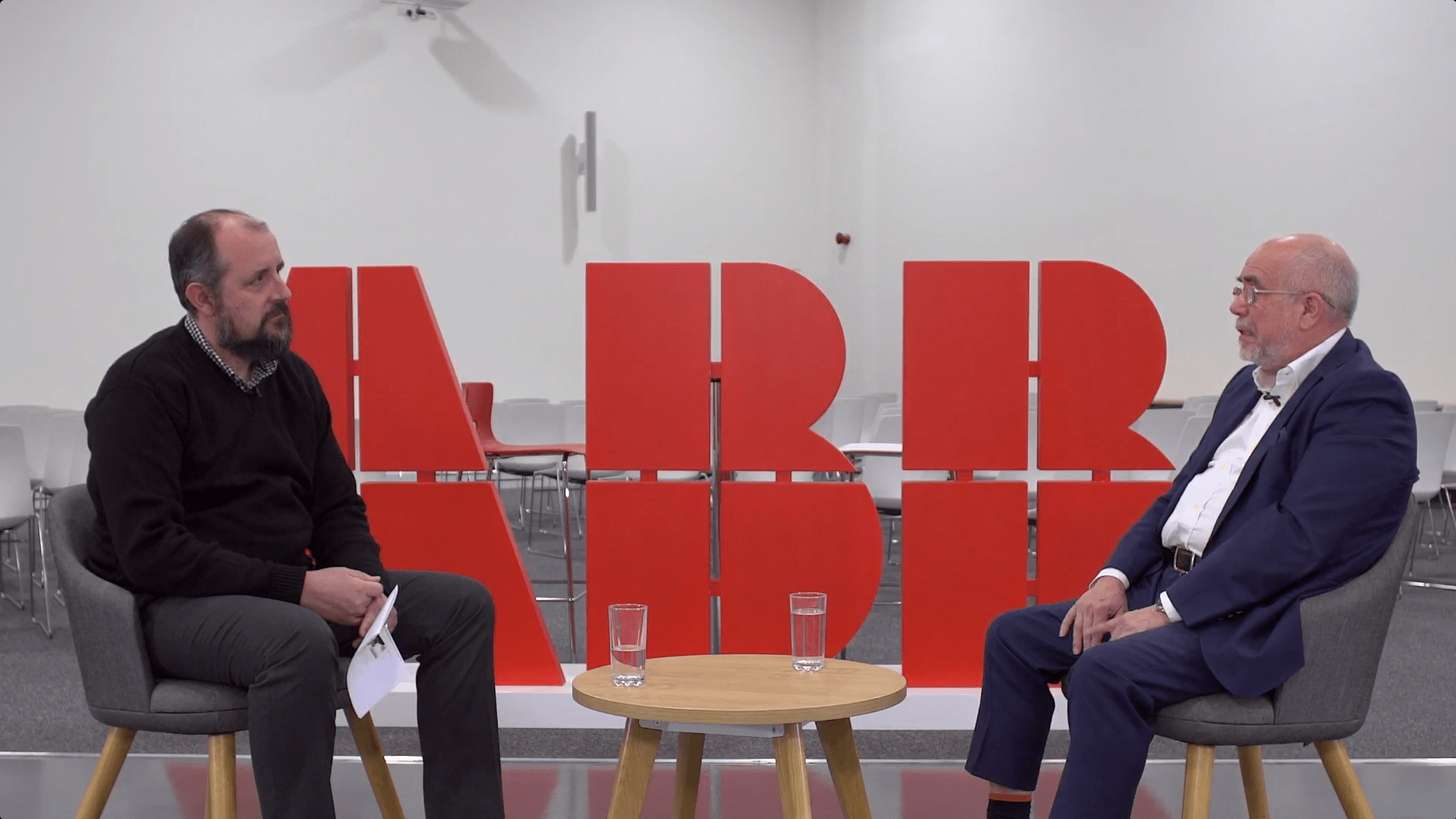
What do you feel your strongest quality is?
Curiosity and empathy.
I've always wanted to know more. I think that was probably instilled in me by my parents, particularly my dad, not taking things at face value, questioning things and wanting to find out how things worked. One of the first books I remember having was an encyclopaedia from Woolworths or BHS and I loved it. Mine was history and it had everything in there from the Romans up to modern day. I remember that being the earliest spark, almost like I wanted to find out more about stuff and dig down research.
And I say empathy for various reasons, one is bringing new people on, you get a lot more out of it if you are empathic and sympathetic.
I think in terms of empathy, if you can empathise with the situation, you can understand it more.
What was your dream job growing up and why?
Starship captain. But it doesn't exist.
I've started to think about a serious answer. My dad was a fireman. So, I went through a stage of wanting to be a fireman, but he talked me out of it. I wanted to be a Navy captain, but I was a bit concerned about my lack of mathematical prowess. God knows where we've ended up. So, I thought being a Starship Captain was quite safe because it doesn't exist. One of my heroes, like most people growing up, was Captain Kirk, you always wanted to be whizzing around the universe on a big spaceship. So, if that position ever becomes available, unfortunately, I’ll be leaving Napier and taking that one.
Where do you see yourself in 10 years?
I'm going to be 60. That is just incompatible with my brain.
It’s difficult to say because as far as I've got now, it's been day-to-day. I've never really thought about it in terms of a long-term plan. I never really had any plan other than to be good at what I did. I think if I were to be cheesy, I’d say still working for a good team and looking for new ways to do things. That would probably be the best answer because in terms of progression I’m happy with what I'm doing. I like the fact I run this part of ABB, and I really like the way things are developing. So, I think if we keep going, this whole question of where I see myself is a question of where we see ourselves, in 10 years.
Future Horizons: October Semiconductor Update
We're excited to present this month's excerpt from Future Horizons' October report on the semiconductor market. Read on to discover the latest insights and outlook for the industry.
Executive Summary
August saw Opto’s growth tumble back, coming in at just 0.3 percent vs. last month’s 3.7 percent, with the average growth since the market turned down in September 2022 at minus 2.5 percent. July’s shipments were 10.4 percent down from its April 2022 peak.
The Discrete sector also continued its now 8-month long negative growth trawl, at minus 9.4 percent, compared with minus 9.2 percent in July and minus 12.3 percent in June, dashing last month’s hopes that the sector may have been showing the first signs of a broader industry recovery.
Excluding memory, the annualised IC market showed a more subdued 8.4 percent growth, reflecting just how strong an impact the memory rebound has been on the semiconductor market.
Whilst the overall year-on-year total Semiconductor market growth in August was 28.0 percent, up significantly from last month’s 18.0 percent number and June’s 15.9 percent growth, backing out the Memory, and to a lesser extent, Logic sectors, unfortunately reveals a much more sober picture, with the Micro, Analog, Opto and Discrete markets still gripped in recession.
As the year end approaches, there is finally a growing realisation that the earlier super-cycle euphoria around this year’s strong double-digit growth might have been misplaced given the increasing flurry of negative datapoints and softer-than-expected demand.
Aside from memory, deservedly celebrating a real recovery, key indicators such as the European and discrete markets remain in recession, Opto shows barely any growth, and unit growth has yet to recover. As we highlighted in our January 2024 industry update webinar, the current strong double-digit monthly annualised growth rates are more likely to be the semiconductor equivalent of 'fool’s gold,' with the deeper and broader real recovery from the 2023 collapse yet to happen.
From a volume and mainstream industry perspective, the semiconductor market is still in a deep downturn, despite a primarily memory-driven ASP surge driving strong revenue growth.
It is now eight quarters since the start of the recession in Q3-2022 making this correction one of the longest down periods ever.
We reiterate our belief that 2024’s rebound will prove a false dawn, with low single-digit growth expected in 2025 as the industry slowly recovers from the surplus inventory accumulated during the Covid boom.
Read The Full Report Here: https://www.futurehorizons.com/page/137/
If you missed last month's industry update webinar, you can now watch the recording here. Plus, don't forget—you can still get a 10% discount on the full report by using the code ‘Napier’ at checkout through the order link.
Electronics Excellence Awards Announce Judge Panel
Last month we shared the news that Electronic Specifier will be honouring the very best of the industry with its Electronics Excellence Awards at electronica 2024.
This year, the awards will see a new lineup of judges, complete with industry thought leaders and electronics specialists.
The panel of judges has now been announced and will include:
- James Davey, Vice President at Eingofchips (an Arrow company)
- Mark Patrick, Director of Technical Content for EMEA at Mouser Electronics
- Marta Barbero, Product Manager at Arduino
- Robert Owen, Consultant
- Simran Khokha, Product Manager for MCUs, and Infineon
- Stéphane Ratelet, Director of Business Development/Digital Solutions EMEA at DigiKey
The entries will be discussed in-depth by the judges and then scored independently, with the highest-scoring entry being the winner.
It's great to see such an expert-filled panel of judges and we look forward to seeing the awards at this year's electronica. Good luck to everyone who enters!
Future Horizons: September Semiconductor Update
We’re happy to share this month’s extract of Future Horizons September report on the semiconductor market. Continue reading to find out more about the current outlook of the market:
Executive Summary
The Discrete sector continued its 7-month long trawl in negative annualised growth territory, at minus 9.2 percent, compared with minus 12.3 percent in June and minus 13.8 percent in May.
In contrast, ICs, the powerhouse behind the industry’s current revenue growth, saw its eighth consecutive month of strong double-digit annualised growth, at 23.0 percent, up slightly from June’s 22.1 percent growth but down from May’s 30.1 percent number.
Excluding memory, however, the annualised IC market showed a more subdued single-digit 8.8 percent growth, reflecting just how strong an impact the memory rebound has been on the overall total IC and total semiconductor markets.
Analog ICs, the still worst-performing sector, saw its eighteenth month of negative annualised monthly growth, at minus 1.4 percent, vs. minus 1.3 percent in May and minus 9.2 percent in April. The Analog IC market is now down 16.5 percent in value from its June 2022 high.
July was also the nineteenth consecutive month where unit shipments were below the IC usage trend, confirming our belief that the much-needed inventory burn still has a long way to go. There is now little hope for a second-half-year IC unit rebound.
Excess inventory remains the industry’s number one problem, affecting not only unit shipments but capacity utilisation rates as well. Forcing customers to honour the Long-Term Agreements (LTAs) signed in the 2022-23 market boom has clearly frustrated efforts to liquidate stocks and rebalance supply with demand, pushing the unit recovery further down the road and elongating the historical 4-quarter inventory correction norm.
Several key broader-industry bell-weather sectors, such as Analog ICs and Discretes are still looked in a deep recession, whilst high-sticker priced nVIDIA GPUs are flying off the shelves in seemingly insatiable gay abandon.
Wafer substrate sales remain weak, with forward visibility unclear, as would be expected in a low IC unit shipment environment, but CapEx remains strong, driven by a massive China spending spree, accounting for around half of the global CapEx spend.
Sadly, the overall industry fundamentals remain stubbornly weak, with unit sales and the Analog IC and Discrete markets still gripped in recession.
A broader-based industry recovery is unlikely before mid-2025.
If you missed the industry update webinar, which took place in early September, you can now watch it here. You can also still receive a 10% discount on the full report by using the code 'Napier' in the order link.



